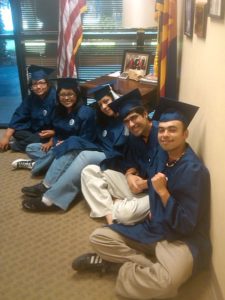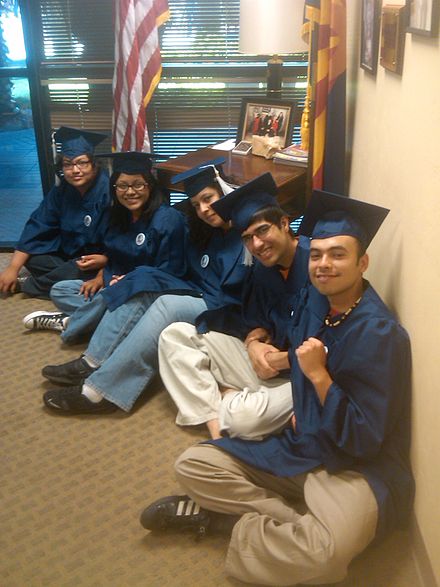
With exams, papers, and presentations looming, Carlos Alvarez, 20, sat tucked away in his Dallas, Texas, community college library away from all of the noise. Notes, pens, and the odd Starbucks coffee cup could be seen strewn across the table, making Alvarez’s workspace identical to all of those around him.
But Alvarez is very different from his classmates. While they could look forward to prestigious internships and imagine their lives after college, Alvarez’s future is uncertain. He is a recipient of Deferred Action for Childhood Arrivals or DACA , which means Alvarez is undocumented.
With DACA, Alvarez is able to attend college and also have a job. But on Sept. 5, 2017 the Trump administration terminated the DACA program. According to the Immigration Legal Resource Center, the fate of the DACA program is being litigated in four different parts of the country at this time. The most recent update came on Aug. 8, 2018 when a Texas Federal judge heard a case in which several states aim to shut down the program entirely.
“I want to become a citizen,” said Alvarez. “This is the only country I have ever known, but there is no citizenship path with DACA, only renewal.”
According to the Migration Policy Institute, 1.4 million Mexican immigrants made their way to Texas from 2012-2016. Alvarez’s family immigrated to Texas in 1999.
“My family left Mexico for economic reasons,” said Alvarez. “We didn’t walk through a desert or anything. We just took a bus.”
Today, Alvarez’s trip to the U.S. is not what is seen as the norm. Many media outlets such as CNN have reported families being separated for long periods of time. As well as some migrants being teargassed on Nov. 25, according to Reuters.
“Everyday since October 26th, immigration authorities have released 20 to 30 families into San Diego tagged with ankle bracelets and without any resources or way to reach their final destination,” said Sandy Young a spokesperson for San Diego Rapid Response Network.
According to SDRRN, this drop and go tactic by Immigration and Customs Enforcement, or ICE is a new policy adopted by the organization. This change occurred after ICE ended its “safe release” program which ensured that families had somewhere to go after entering the U.S.
Even if these migrants made it to the U.S. seemingly unscathed, the better life for their children some were hoping for, may not be as attainable as they had originally thought.
“It’s pretty much impossible for me to become a citizen under DACA,” said Alvarez. “I have a job, I’m in college, I’ve never committed a crime, and yet the only country I have ever known isn’t giving me anything in return.”
On top of not being able to leave the country, DACA recipients cannot commit major crimes or else they will be deported from the U.S.
“This invokes a lot of fear in people,” said Alvarez. “We are stuck in this limbo stage and one step out of line and you lose everything.”
Including being worried about his own future, Alvarez continued to express concern for those attempting to immigrate to the U.S. today from Latin American countries.
“There must be major issues for them to come all this way,” said Alvarez. “Clinging all this way to hope for a better tomorrow. Imagine having to going through all that adversity and finding out there is nothing you can do.”
In addition to fearing for the safety of migrants on their journey to a better future, another concern of his was how the Trump administration’s current policies for dealing with migrants is exacerbating the issue of migrant treatment once they are allowed into the country.
“The easiest way to get people to stay in their own country is by providing aide so they don’t feel like they have to leave their country,” said Isabella Venturini, 20, a Bolivian born U.S. Citizen. “Trump shouldn’t be gassing children, but I also think the media romanticizes the migration process of these people.”
While tear gassing migrants can be seen as a step too far, Trump’s anti-immigrant rhetoric has also been noted as being detrimental to the validity of migrants asylum claims.
“He is generalizing entire countries,” said Alvarez. “ Calling Mexicans rapists isn’t fair. They’re the ones taking jobs no one else wants.”








